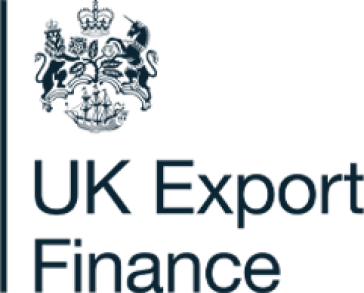What does ESG stand for?
ESG stands for Environmental, Social and Governance. Broadly speaking, this refers to concepts of sustainability as they apply to business, and are particularly relevant when investing in companies. Think of it as the build blocks used to assess how a business is doing when it comes to sustainability and ethical issues.
ESG covers three key areas:
Environmental
This can include all manner of green policies, from corporate climate policies to tracking energy use, pollution, treatment of animals and even natural resource conservation. It also considers things like indirect greenhouse gas emissions and environmental regulations.
In the current climate, environmental strategies are typically built around mitigating climate change, so you’ll often see ESG referring to Net Zero goals.
Social
This covers things like employee safety, health, working conditions and diversity. It also covers human rights, which is especially important to consider if you have a supply chain. Do you know the impact you have on your local community, for example?
Consumer protections also fall under this aspect, with customers expected a certain amount of protection. This also helps protect companies from litigation.
This also includes making sure your suppliers also adhere your ESG standards. It’s not good having an ultra-green renewable energy policy in your business if all your suppliers are non-renewable!
Governance
This area is about being as transparent as possible to potential investors. For example, clearly showing your management structure, giving clear board oversight, managing employee relations in order to attract the best talent, and keeping a close eye on executive compensation.
Why is ESG so important?
ESG for a business is very important, because without having a clear framework in place, there are a lot of pitfalls you can stumble into without realising it. Understanding ESG factors can help you identify potential risks.
A truly sustainable business is a more agile and resilient business. It’s much easier to withstand sudden market shifts if your supply chain is sustainable, for example.
ESG frameworks are also often used by investors as a form of risk management for investors. If you don’t have one in place, investing in your becomes a much less attractive proposition.
What is the ESG criteria?
The ESG covers a number of criteria. These include but are not limited to:
- Reducing carbon emissions
- Using more energy efficient practices
- Dealing with water scarcity
- Combating pollution (particularly air and water pollution)
- Waste management strategies
- Human rights observance
- Meeting labour standards
- Measuring customer satisfaction
- Promoting gender equality
- Protecting data
- Displaying executive compensation policies
- Having anti-bribery and corruption policies
- Implementing whistleblower schemes
For more ESG criteria, check out this guide.
How does ESG investing work?
Companies that engage in risky or unethical practices (the kinds of behaviour that an ESG will flag up) is naturally a riskier investment. By having this information clearly available you become more attractive to investors.
Brokerage firms even offer exchange-traded funds (ETFs), as have mutual funds. Robo-advisors are also being seen to promote ESG options.
Investing in companies with a strong ESG is commonplace enough that it has multiple names, including impact investing and socially responsible investing.
Benefits of ESG
There are loads of great benefits to utilising ESG, including:
Investment returns
Companies with a strong adherence to ESG standards are more attractive to investors, especially the new breed of socially responsible investors. This gives you access to more avenues of investment, improving your returns.
Attract new customers
Around 75% of people say they prioritise companies that ethically source their materials. Publishing your ESG reports in a clear and accessible way will build consumer confidence in your company, leading to more customers!
Encourage forward-thinking decisions
When you have an ESG strategy in place, you’ll have a much clearer view of how your business is functioning, as well as any potential sore spots. That makes it easier to make informed decisions.
Retain employees
As a rule of thumb, people want to work for companies that engage in ethical and sustainable practices. Around 28% of employees say they would leave their job for a workplace that was more eco-friendly.
Cut costs
Companies that prioritise ESG enjoy more long-term resilience, which means they’re much better prepared for any sudden changes in the market. This means you won’t have to suddenly throw money at an unexpected problem.
Accelerate your ESG strategy
With so much to track, getting an ESG strategy in place might seem like an impossible task. An ESG reporting tool can massively help support your strategy. They will help you create a sustainable strategy, collect data and report more effectively.
Compliance
There have been a few cases of companies missing the mark when it comes to reporting on their ESG policies. A centralised platform will ensure all your data is compliant with legislation and isn’t being misrepresented.
Time-saving
Manual processes take a lot of time, and a lot of organisations don’t have a lot of that to spare. An ESG reporting tool will reduce busywork and make reporting a much more appealing job.
Collaborative
ESG shouldn’t be the role of a single person, so the easier you can make it for other team members to collaborate the better. A reporting tool will help and reduce the risk of double entry or repeated work.
Streamline data
Data silos make any kind of reporting a lot harder. You won’t have a clear picture of what’s going on if all the data is split up. A central platform will contain all the data you need!
Improve your knowledge with our ESG resources
If you’re looking to dig into more detail and get an idea of how to start implementing your very own ESG strategy, we’ve put together a simple guide that will support you. You’ll learn:
- How to define your ESG objectives
- How to get your strategy moving
- How to make use of available tools and resources.
Drive sustainable growth with MHR
With sustainability as one of our core values, we’re keen to support every organisation in creating a more sustainable world, and to protect their profitability in the face of a range of challenges.
Whether that’s through tools like real-time payroll, improved workforce management, MHR has been helping businesses innovate for nearly forty years.
Discover how we can help you


































































